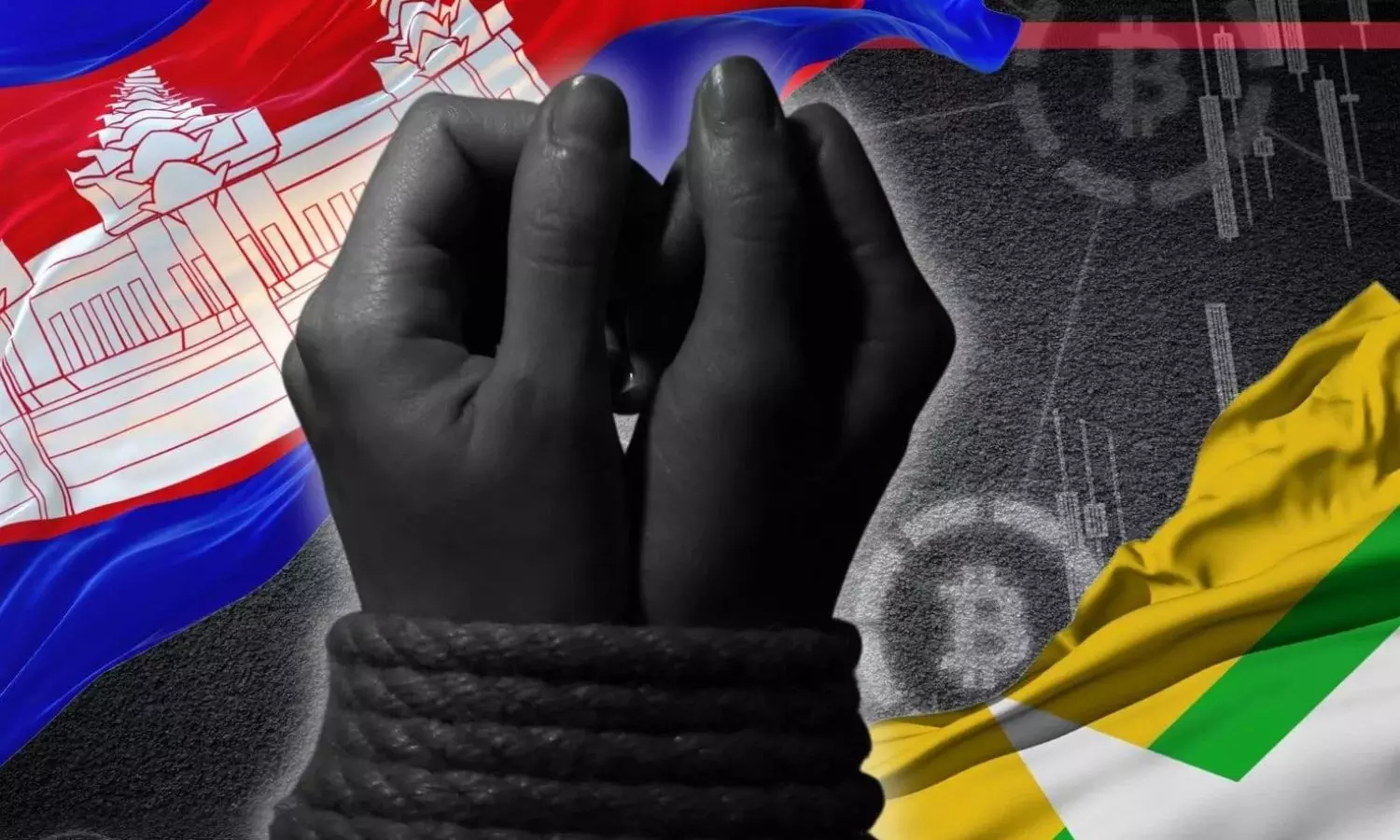MHA Holds Talks on Rescue Strategy for 5000 Indians Trapped in Cyber-Slavery in Cambodia
The Ministry of Home Affairs (MHA) convened discussions with various ministries and experts to devise a strategy for rescuing over 5,000 Indians trapped in cyber slavery in Cambodia.
image for illustrative purpose

Over 5000 Indians trapped in cyber-slavery in Cambodia are allegedly being forced into cyber fraud activities targeting people in India. The government suspects that within the last six months, these fraudsters have defrauded Indian residents of at least Rs 500 crore.
Recently, the Ministry of Home Affairs (MHA) convened a meeting involving officials from the Ministry of External Affairs (MEA), Ministry of Electronics and Information Technology (Meity), Indian Cyber Crime Coordination Centre (I4C), and other security experts. The objective was to devise a rescue strategy for Indian victims of human trafficking in Cambodia. These efforts by MHA to combat cyber-slavery and human trafficking reflect its commitment to ensure the safety and welfare of Indian citizens abroad.
Sources reveal that the meeting aimed to address the organized fraud network and repatriate those affected. Investigations indicate that agents lure victims, primarily from southern India, promising them data entry jobs in Cambodia. However, upon arrival, they are coerced into carrying out cyber scams.
Victims in Cambodia are allegedly compelled to conduct scams targeting Indians, including impersonating law enforcement officers to extort money. Three individuals from Bengaluru have already been rescued and brought back to India.
The issue came to light after the Rourkela Police in Odisha dismantled a cybercrime syndicate on December 30 last year, leading to the arrest of eight individuals involved in trafficking people to Cambodia.
According to police, the scam involved tricking individuals into joining fraudulent companies in Cambodia, where they were forced to work long hours under dire conditions. Victims who refused were subjected to physical abuse and other forms of torture.
The scam initially involved posing as women on dating apps to lure victims into cryptocurrency trading schemes. Later, victims were coerced into investment scams involving fake stocks and online apps.
Law enforcement agencies have gathered crucial information about the fraudulent companies and identified key operatives, intending to collaborate with Interpol to apprehend them. Efforts are underway to rescue more victims and bring them back to India safely, facilitating a collaboration between government agencies and support from the Non-Resident Indian Forum of the Government of Karnataka (NRIFK) to aid in the process. The collaborative initiatives between India and Cambodia demonstrate a concerted effort to combat cyber-slavery and human trafficking and ensure justice for the victims.

